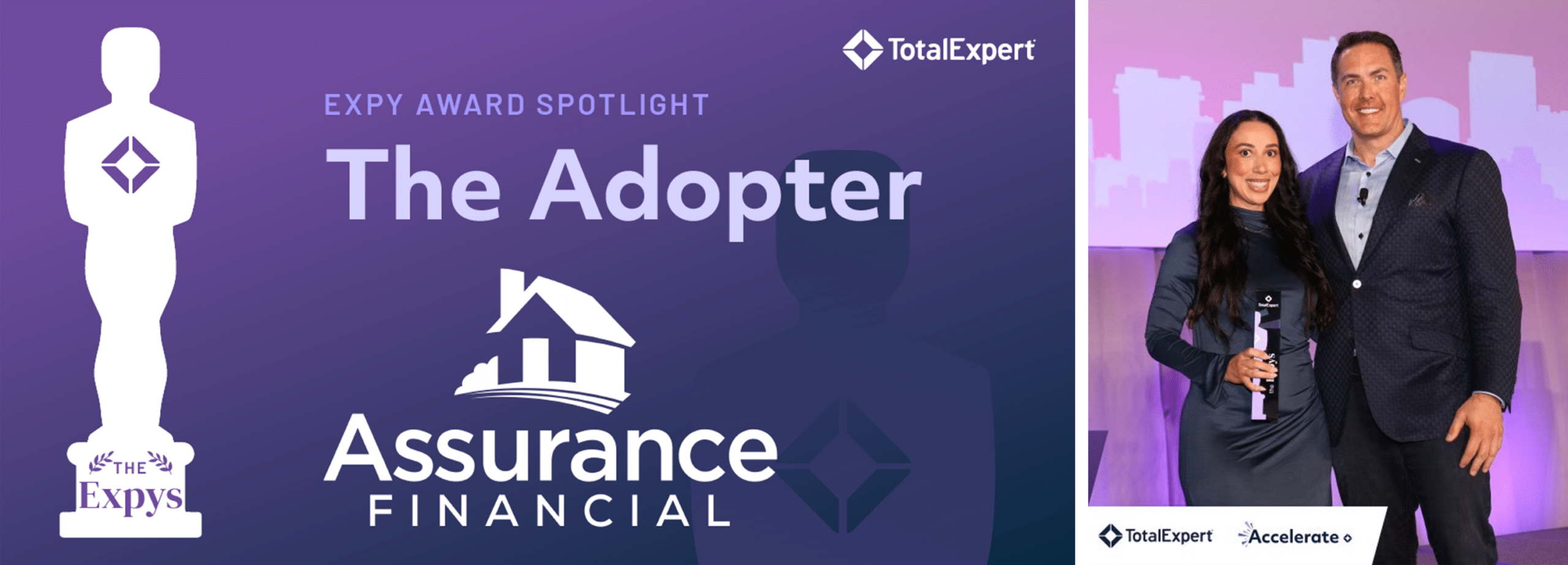Category: Uncategorized
Home Loans with Heart
Matthew Hunter at Assurance Financial Brings Boutique Service and Big Company Strength to Aiken
Article by Nikita Hanif | Photography by Rebecca Judy
Originally published in Aiken City Lifestyle
Matthew Hunter’s path to becoming Aiken’s most trusted mortgage professional was anything but predictable. His journey began far from the world of home loans, rooted instead in chemical equations and engineering plans. A 1991 graduate of the University of Pittsburgh, Hunter earned degrees in chemical engineering and biochemistry before moving south to begin a career as an environmental engineer. He spent eight years working at the Savannah River Site, driven by the idealism that defines so many young engineers, a desire to make a difference and change the world.
But he soon learned that big systems are slow to change. “I had some ideas I really believed in,” he recalls, “but I kept running into walls.” Frustrated and searching for a new direction, Hunter found himself at a crossroads. Around that time, his wife, Kristi, had completed medical school in Charleston and received a residency in Augusta. The couple moved to North Augusta to begin a new chapter.
Kristi’s medical career was taking off, and Hunter, eager to spend time with their boys, decided to step away from engineering and take on the role of stay-at-home dad with their move to Eatonton GA. The plan sounded simple enough until reality set in. “That lasted about six months,” he says with a laugh. “Kristi came home one evening after a long shift, and the house was a disaster. The boys and I had a great day, but there was no dinner on the table and no groceries in the fridge. She looked at me and said, “You have got to get a job.’”
As fate would have it, his mother had started Hunter Mortgage Inc. in Aiken and happened to need help at the office. It seemed like a temporary arrangement at the time, but that decision would launch a career that’s now spanned over 25 years. He spent his time learning all the ropes of the industry and how to treat his clients with dignity and respect.
The early 2000s brought a refinancing boom, and the office was busier than ever. Hunter began splitting his time between Georgia and Aiken, commuting several days a week to lend a hand. A few days turned into a full week, and before long, the Hunter family moved back to Aiken permanently. “It wasn’t a path I planned,” he admits, “but looking back, it was exactly where we were supposed to end up.”
At Hunter Mortgage, Hunter discovered that the skills he had honed as an engineer, precision, problem-solving and attention to detail, translated perfectly into the mortgage world. But what truly drew him in wasn’t the numbers or the paperwork; it was the people. He realized he loved helping clients navigate one of the most significant decisions of their lives. “I’ve always seen this job as a vocation, not just an occupation,” he says.
For Hunter, the most rewarding moments come when first-time homebuyers walk into their new homes. He takes pride in making the process less intimidating. “I love working with people who’ve never bought a house before,” he explains. “You can see the anxiety at the start, but when they sign those papers and get their keys, that joy is contagious. It’s fulfilling every single time.”
Eventually, the family business began to wind down. His parents, Al and Beverlie, who had both poured their lives into Hunter Mortgage, were ready to slow down. His father, an accountant who had spent his career at Westinghouse before joining the family firm, handled payroll and reporting while his mother led the way and set the standard for taking care of all of her clients. “They were dedicated to the end, but it was time for them to be able to step back and enjoy all of their hard work.” What followed was a change in direction for the business.
That change came through an unexpected connection. One of Kristi’s patients mentioned that her husband worked for Assurance Financial in Columbia. A conversation turned into an introduction, and soon Hunter connected with the company’s leadership team. The more he learned, the more he felt it was the right move. “It just happened organically,” he says. “Assurance had the resources and infrastructure to handle all the back-office work so I could focus on what I love most, helping people.”
Assurance Financial, a company that was boutique-built and enterprise-backed, offered exactly what Hunter had been looking for. The firm operates with the personal, concierge-style service of a boutique lender where every client feels known and supported but with the strength, technology and resources of a large financial institution. “It’s truly the best of both worlds,” Hunter explains. “We can deliver that small-town level of care and attention that Aiken deserves while having the backing of a big corporate company that gives our clients confidence and security.”
Hunter leads his office with the same warmth and integrity that has defined his entire career. At his side is Kayla, an exceptional assistant who keeps the office running seamlessly “Kayla’s amazing,” Hunter says. “She keeps everything on track and makes sure our clients always feel supported.”
Of course, no visit to Hunter’s office at Assurance Financial would be complete without greeting his two loyal golden retrievers, Loki and Bowie. The friendly pair are beloved by clients, often lounging by the door or wagging their tails to welcome visitors. “They’re part of the family,” Hunter says. “People will drop by just to say hi to them.”
Matthew’s story is one of perseverance and finding fulfillment in unexpected places. From environmental engineer to trusted mortgage professional, his journey reflects a belief that the best careers aren’t always planned; they’re built on passion, relationships and faith.
Meet Ava: How Assurance Financial is Using AI to Enhance the Mortgage Experience
January 7, 2026
Our clients may have received a call from Ava from Assurance Financial and wondered, who is this and why is she reaching out to me? Well, Ava is the newly introduced automated intelligence assistant designed to support, not replace, our Loan Originators (LOs) by ensuring clients are aware of when rates drop and help is available. The implementation of Ava creates a more streamlined experience for clients, reducing delays while preserving the boutique, relationship-driven service Assurance Financial is known for.
The conversation around AI in mortgage lending often comes with skepticism, which is why we’ve been intentional about how Ava fits into our client experience. We partnered with Total Expert, a platform purpose-built for mortgage lenders, to ensure Ava integrates seamlessly into our existing workflows while meeting the highest standards for compliance and client communication. As rates change, we want our clients to be aware and get those new rates locked in. Ava reaches out to the client on behalf of our LOs to set up a meeting and begin streamlining the application process. Clients still receive that meaningful touchpoint of being able to speak to their LO. Not only does this process occur seamlessly, but it allows our clients who are going through the mortgage loan steps to benefit from increased time savings. LOs can focus on complex needs and personal guidance for each individual client, while allowing Ava to handle the minutiae of scheduling and setting up calls. It has truly become a game-changer for Originators.
It’s important to note that our compliance department worked hand in hand with Total Expert to ensure that we are compliant with U.S. Telephone Consumer Protection Act (TCPA) regulations. Because TCPA requirements vary by state, our compliance team worked closely with Total Expert to ensure every interaction meets regulatory standards, protecting both our clients and our team.
At Assurance Financial we look forward to continuing to see measurable results for our clients through the use of Ava. Her assistance allows our Branch Managers and LOs to continue to deliver the boutique feel Assurance is known for nationwide. The safe, efficient, and responsible usage of an AI assistant, like Ava, will ultimately lead to an even better experience for our clients.
About Assurance Financial
Founded in 2001, Assurance Financial is a full-service residential mortgage lender headquartered in Baton Rouge, Louisiana. With licensed loan officers across the country, Assurance offers a wide range of loan products to meet the needs of today’s homeowners. The company is guided by a commitment to exceptional service, innovative solutions, and a culture of giving back to the communities it serves.
Media Contact
Jessica Thames
Director of Marketing
Assurance Financial
jthames@assurancemortgage.com
859-539-5953
The metropolitan area of Shreveport, Louisiana, has experienced steady population growth dating back decades. This could stem from numerous factors, such as the allure of living in a mid-sized town with a low cost of living — all of which the city of Shreveport lists as reasons to live in the area. The diverse job market is another notable consideration that could draw individuals and families to Shreveport.
Whether considering a position with Shreveport-based businesses or moving there to enjoy the region, understanding the job market in Shreveport will help you establish a comfortable life.
Shreveport Employment Statistics
Shreveport’s workforce is around 177,600 people, with a 3.6% unemployment rate. Workers in the area earn an average of $24.61 per hour or around $51,200 per year — just shy of the $53,440 average in Louisiana.
The job opportunities in Shreveport consist largely of positions in industries such as manufacturing, education, health care, government, trade, transportation, utilities and construction. Numerous hotels and casinos employ thousands as well.
Workers in Shreveport’s most prominent industries earn the following estimated average annual pay:
- Physicians: $303,000
- Engineers: $93,000
- Registered nurses: $87,000
- Computer analysts: $72,000
- Aircraft mechanics: $69,000
- Secondary school teachers: $68,000
- Public relations specialists: $63,000
- Electricians: $51,000
- Gambling dealer: $45,000
- Construction laborers: $39,000
- Office administrators: $39,000
- Health care assistants: $30,000
Top Employers in Shreveport
Shreveport’s job market features positions with a diverse range of companies and organizations. Some of the largest employers in Shreveport are government agencies, while health care organizations, information technologies companies and industrial businesses each employ hundreds of individuals. Some of Shreveport’s most prominent employers include:
- Barksdale Air Force Base
- Willis-Knighton Medical Center
- General Dynamics
- City of Shreveport
- Southwestern Electric Power Company
- Caddo Parish Public Schools
- Benteler Steel/Tube
Living and Working in Shreveport
As you analyze where to live and work in Shreveport, consider ways to better understand your potential monthly expenses. Assurance Financial has a free mortgage calculator you can use to estimate your monthly payment.
We encourage you to use our loan calculator to produce an estimate when budgeting for the Shreveport housing and job markets.
Mortgages From Assurance Financial
At Assurance Financial, we’re the people people with technology that helps buyers manage their expenses. We can equip you with competitive financing when buying a home in Shreveport, so apply for a mortgage online in as little as 15 minutes.
From art and museums to sports teams and parks, Birmingham, Alabama, offers something for everyone to enjoy. If you’re moving to Birmingham from another state or from elsewhere in Alabama, one of the best ways to help yourself feel at home is to take advantage of the many activities and attractions this city provides.
Birmingham, Alabama, Sports Teams
Birmingham is home to several professional minor league and college sports teams. The current teams and their sports include:
- Birmingham Barons: Baseball
- Birmingham Bulls: Ice Hockey
- Birmingham Legion FC: Soccer
- Birmingham Squadron: Basketball
- Birmingham Stallions: Football
With so many teams to see, multiple venues are available to catch a game or attend other events. Some of the venues in Birmingham are:
Attractions in Birmingham, Alabama
Birmingham, Alabama, is a vibrant city and offers a long list of attractions to explore. Some of the many attractions available include:
- Vulcan Park and Museum: Vulcan Park and Museum enables visitors to learn more about Birmingham and access an observation tower with stunning city views.
- McWane Science Center: Both young and old will appreciate the chance to learn more about science hands-on with McWane Science Center.
- Birmingham Museum of Art: With more than 24,000 paintings, sculptures, prints, drawings and decorative arts, The Birmingham Museum of Art is one of the more diverse art museums in the area.
- Birmingham Botanical Gardens: Spend the day immersed in nature as you take in the native flora and fauna at Birmingham Botanical Gardens.
Entertainment in Birmingham
Whether you’re in the mood for a concert, something fun for date night or an event that will entertain the kids, there are numerous entertainment opportunities in Birmingham, such as:
- Locked In: The Birmingham Escape Room: Enjoy three different escape rooms for a unique way to test your puzzle-solving skills.
- Alabama Theatre: Take in live music, classic movies and events at the Alabama Theatre.
- Breakout Games: Try to escape as you develop your problem-solving skills at Breakout Games.
- Iron City Bham: See a live show from your favorite artist at Iron City Bham.
Let Assurance Financial Help You Buy a Home Close to Everything Birmingham Has to Offer
If you’re ready to call Birmingham home, Assurance Financial is here to help. We offer various loan options to make it possible to buy the house of your dreams. Start your application today to get one step closer to calling this beautiful city your home.
Whether moving to a new Aiken County neighborhood or settling in the area for the first time, homebuyers often compare the various public and private schools available to their children.
Public Schools in Aiken
The Aiken County Public School District provides public education for students across the county. The district has over 23,000 students spread across 21 elementary schools, 12 middle schools and eight high schools. Around 48%- 51% of students in the district are proficient in reading, while roughly 34% achieve math proficiency.
Top High Schools in Aiken
Top Aiken high schools offering grades nine through 12 include:
- Aiken Scholars Academy
- North Augusta High School
- South Aiken High School
Top Middle Schools in Aiken
Top Aiken middle schools offering grades six through eight include:
- New Ellenton Middle
- North Augusta Middle
- Paul Knox Middle
Top Elementary Schools in Aiken
Top Aiken elementary schools offering pre-k through grade five include:
- Clearwater Elementary
- Belvedere Elementary
- Chukker Creek Elementary
Private Schools in Aiken
Families in Aiken County can choose between 15 private schools. Each private school has a religious affiliation.
Over 2,500 students attend private schools in Aiken County. While South Carolina’s private schools comprise 8% of the student population, 10% of K-12 students in Aiken County attend a private school.
Mead Hall Episcopal School
Mead Hall Episcopal School is Aiken County’s premier private school. With a tuition over $11,000 for the highest grade, over 370 students attend the school. All of its students graduate and pursue post-secondary education.
South Aiken Baptist Christian School
South Aiken Baptist Christian School is another top choice for private K-12 education in Aiken County. Around 230 students attend the school, which costs over $6,000 annually. All South Aiken Baptist Christian School students graduate and receive college placement.
Victory Christian School
Victory Christian School is a private school in the North Augusta portion of Aiken County. This school is small, hosting 90-150 students each year. Tuition ranges from $6,250-$6,750, depending on the grade level. Around 75% of Victory Christian School graduates advance to colleges and universities.
Finance Your Move to Aiken County, South Carolina
Assurance Financial can provide the financing and tools you need to move to Aiken County. You can use our mortgage calculator to estimate your payment while evaluating the cost of private school versus public education in Aiken County. To apply for a mortgage, complete our 15-minute pre-qualification process online or find your local loan officer to discuss options.
Assurance Financial Awarded at Total Expert’s 2024 Accelerate Conference
July 5, 2024
We’re proud to announce that Assurance Financial has been recognized in two categories at Total Expert’s 2024 Accelerate conference.
The fourth annual Expy Awards celebrate Total Expert customers for their ability to surpass the limits of what is possible to provide unparalleled customer experiences and drive the financial services industry forward. Winners are chosen for their utilization of the platform to the highest extent to drive business growth and build authentic customer connections. This year’s winners were announced at Total Expert’s 2024 Accelerate Conference in Minneapolis, Minnesota, where financial services leaders gathered to share winning strategies.
- The Adopter: Without universal adoption, even the most innovative technology becomes shelfware. For Assurance Financial, the universal buy-in of the Total Expert platform into daily operations was a route to business growth and overall company success. They noted substantial increases in new loans, funded loans, email click-through rates, and task completion rates correlating to a growth in customer retention
- Firestarter – Director of Marketing Lindsi Flynn: A user who embodies innovation, growth, and industry disruption within their organizations. Firestarters are at the forefront of driving positive change, sparking innovation, and propelling their companies toward a dynamic future.
“Our Expy Award-winners are some of the most forward-thinking organizations in the industry, empowering their workforce with the resources to meet growing customer expectations,” said Joe Welu, founder and CEO of Total Expert. “They are one step ahead of the industry—changing the way their teams leverage data by clearly recognizing customer needs, improving the decision-making process, and establishing more personalized customer journeys. We’re proud to celebrate their success and inspiring dedication to customer-centric innovation through Total Expert.” Learn more here.




